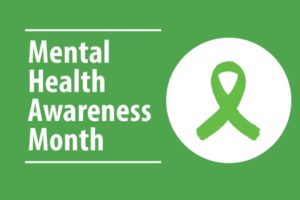Many of us are aware that when someone stops using certain drugs or alcohol, that person can experience withdrawal. This phase of discomfort, called acute withdrawal, often manifests in muscle aches, nausea, headaches, gastro-intestinal distress, increased heart rates, and irritability. Sometimes acute withdrawal can even lead to life threatening situations without proper medical care, such as in the case of withdrawal from alcohol and benzodiazepines. Acute withdrawal’s effects vary from mild to severe depending on factors such a substance, frequency, duration, and quantity used. They can last a few days to a few weeks. For many, withdrawal can continue past this acute phase, though often it is not identified as withdrawal. This phase of withdrawal is called Post Acute Withdrawal Syndrome or PAWS for short.
PAWS is a period of adjustment where the brain is essentially “recalibrating” after an active addiction stage since chronic substance use can change molecular, cellular, and neurocircuitry in the brain. This period of adjustment can last weeks to months, and for some, maybe even years depending on the intensity and length of time of the active addiction. Protracted withdrawal symptoms are often misidentified or not understood because PAWS is not always discussed amongst recovery communities and even medical providers. This can lead to greater distress in the person’s life and ultimately leads to a series of events that can trigger resumption of substance use, or relapse.
Symptoms related to PAWS vary by the substance and other factors but can include irritability, hostility, depression, anxiety, low energy, fatigue, sleep issues, memory problems, trouble focusing, cravings, impaired executive control, anhedonia (inability to feel pleasure), lack of sex drive, and sometimes even chronic pain. These symptoms can sometimes worsen or be triggered by increased stress. People often identify many of these symptoms as occurring in waves that lessen in intensity and duration over time.
To recover from PAWS time helps, but cannot be the only factor in healing. Often people learn to manage the symptoms related to PAWS. Some suggestions include mental health/psychiatric care, good self-care practices, building support networks through family and friends and/or mutual support groups, identifying triggering events, taking care of physical health, good sleep hygiene, educating yourself about symptoms and coping skills, and practicing patience. Recovery cannot be hurried. Not every day will be a good one and treat yourself with some compassion.
If you or a loved one need assistance with mental health or substance use, visit our resources page for more information here. If you are experiencing an emergency situation, please dial 911 or your local emergency services. Much love.
-Chris Dorian, Founder of Know Your Why Recovery
Information in this blog post came from the following pages
https://www.mirecc.va.gov/visn16/docs/post-acute-withdrawal-syndrome-veteran-guide.pdf
https://www.hazeldenbettyford.org/articles/post-acute-withdrawal-syndrome
https://americanaddictioncenters.org/withdrawal-timelines-treatments/post-acute-withdrawal-syndrome
https://www.medicalnewstoday.com/articles/post-acute-withdrawal-syndrome#summary
